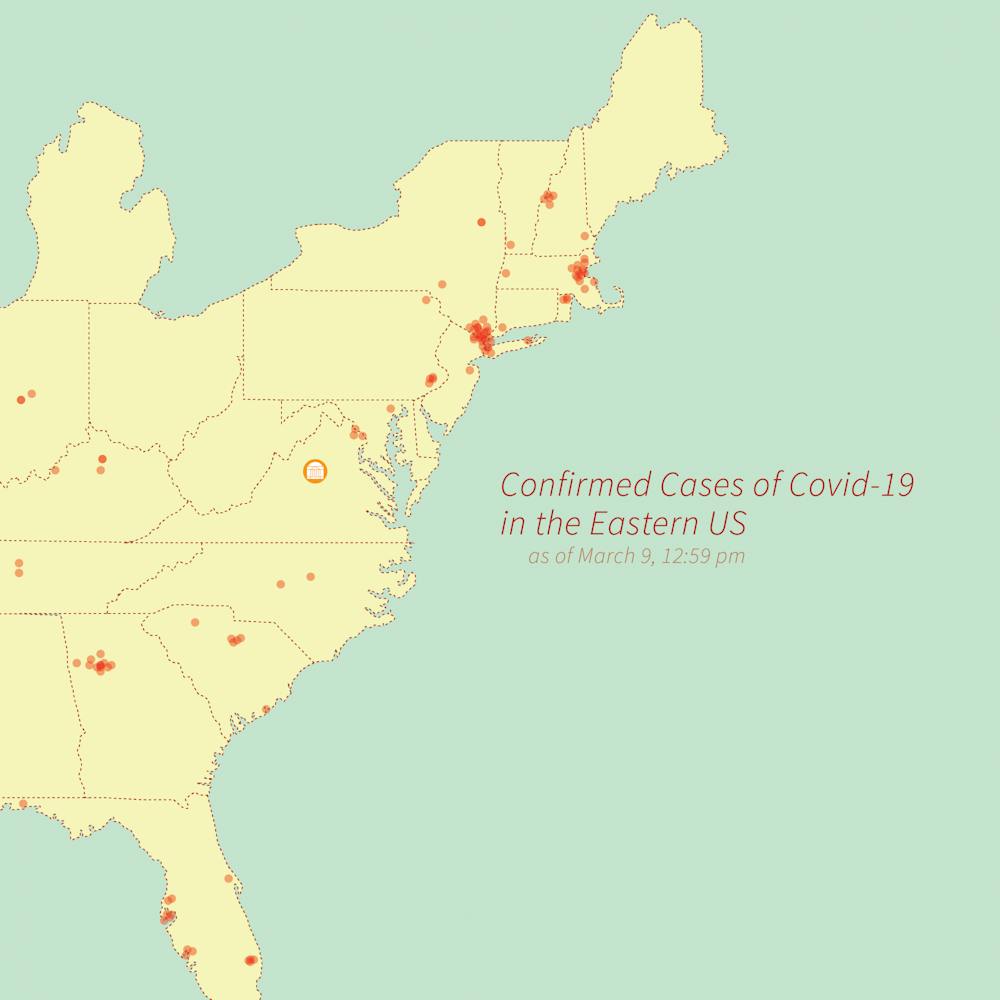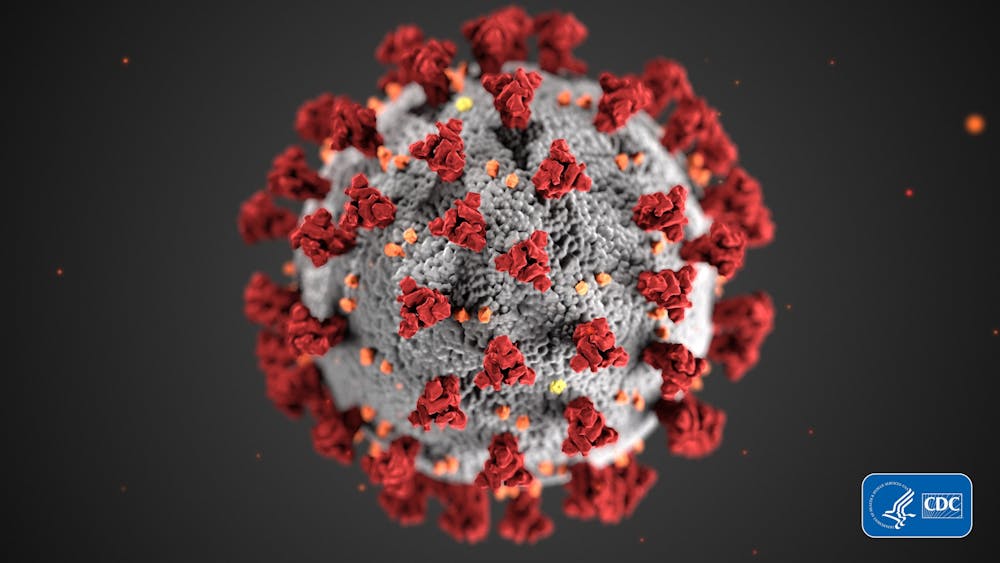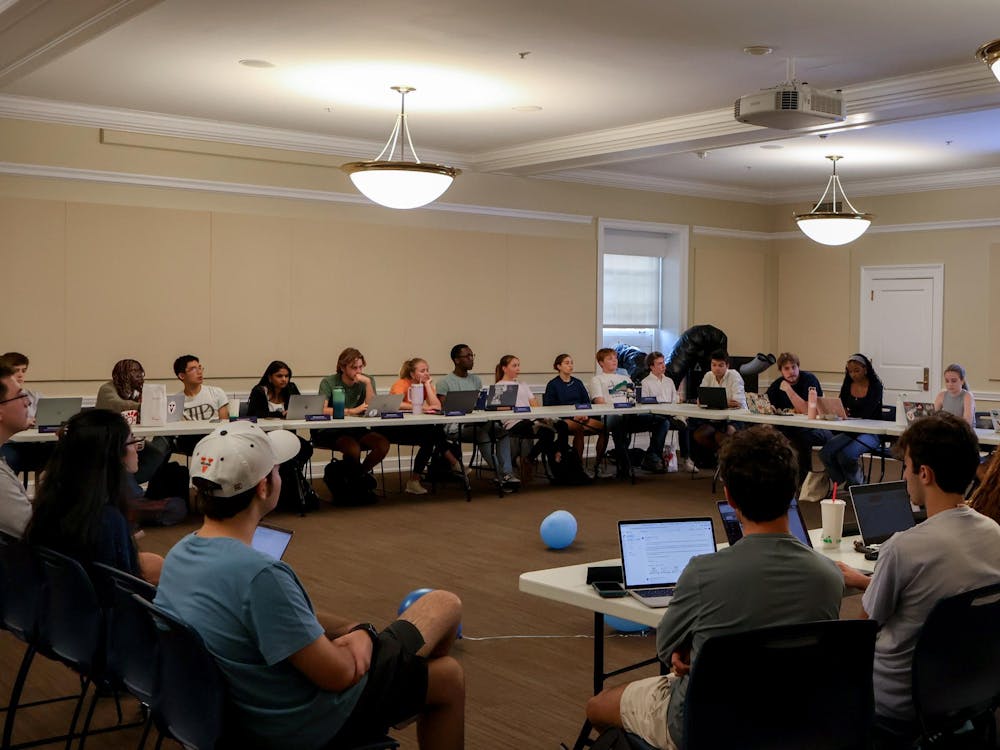With the number of coronavirus cases in the United States approaching 1,000 on Tuesday, University administrators and faculty are preparing to make potential modifications to mitigate against the risk of exposure to the virus.
Although the virus has not reached Charlottesville or the University community, eight people have tested positive for COVID-19 in Virginia as of Tuesday, according to the Virginia Department of Health. Over 113,000 people have been infected worldwide, and the overall death toll has now reached over 4,000, with 30 deaths occurring in the U.S.
As students and faculty spend their spring recess traveling to destinations both domestic and abroad, administration has communicated several precautions in an attempt to keep Grounds safe.
University President Jim Ryan said in an email to the University community Sunday that he is in daily contact with a cross-university team. He added that he and Provost Liz Magill will continue to regularly update the community through messages and the University website.
“At this point in time, we plan for students to return to Grounds and to resume classes, but we will be making some modifications to mitigate against the risk of exposure to and transmission of the virus, which we will explain in more detail by mid-week,” Ryan said.
In an email to members of the University community March 3, Magill recommended students pay close attention to official travel guidance from the Centers for Disease Control and Prevention.
“The decisions we are making rely heavily on the guidance we are receiving from the CDC and the Virginia Department of Health and are intended to protect the health and welfare of our faculty, staff, students, and local community,” Magill said.
Faculty members have suggested as to what students should keep in mind over the next few weeks to keep themselves and others safe, noting that precautionary measures are important to prevent an outbreak on Grounds.
“Students should carefully reconsider travel to areas affected by COVID-19 and be aware that rapidly changing circumstances may hinder their ability to return to Charlottesville,” University Dean of Students Allen Groves said in an email to The Cavalier Daily.
However, this is not stopping many students from their travel plans. Professor Rachel Geer, French House Director, realizes many community members will not follow administrative guidance.
“You have to live your life, but also be thoughtful and be a little bit prepared, so I would say follow the University’s guidelines, but also don’t freak out,” Geer said.
Although the University has cancelled its spring break programs abroad, plans are constantly developing to address the possibility of the coronavirus appearing locally regardless of the precautions being taken. The global health concern is still evolving, meaning potential administrative responses are not firm. Dean Groves is aware that the situation could rapidly change, so the University continues to utilize its Critical Incident Management Plan as it follows guidance from the Virginia Department of Health.
“COVID-19 remains a very fluid situation with circumstances changing almost daily, so we must remain nimble in our approach. We have a number of contingency plans that can be deployed if needed, including modifications to class schedules and limiting large public events,” Groves said.
If a student could potentially spread illness, the University advises them to take responsible measures as members of the community.
“[Virginia Department of Health] may also advise students to self-isolate if they have travelled to an area suffering from widespread impact,” Groves said. “Students should contact their instructors by email for assistance with remote access or alternative class arrangements, should that become necessary.”
Geer also suggests that students stay home when they need to. She has always been supportive of taking sick days, but especially when serious illness could be so easily spread. She notes that students should make taking care of themselves a priority.
“I always say please drink water and please sleep. I know that’s hard to do when you’re a student … but that’s important,” Geer said.
Professors will also have responsibilities to keep the community safe in the event of an outbreak. The University has already communicated to faculty that they should make necessary adjustments if a situation were to occur, according to Dean Groves. For example, Zoom video communication services could allow students to tune into classes remotely.
“If students are unable to attend class, suggested accommodations include allowing students to Zoom into class lectures or use lecture-capture technology to record lectures, granting some flexibility with course attendance policies, assistance with securing a copy of course notes, and modifying deadlines for assignments that normally take place during the course meeting time,” Groves said.
Further instruction will be issued as the epidemic evolves.
Geer hopes that the University has thought deeply about the issues that may arise if the virus affects the local community. As a mother, she is aware of the domino effect that could occur if a faculty member had to stay home because a partner or a child is sick, or if daycares were closed, and that the University should be aware that there could easily be a lot of people missing work.
“It feels kind of like waiting for a hurricane,” Geer said.
Around 50 colleges around the country have already suspended in-person classes due to the coronavirus outbreak, including the University of Maryland, Duke University, Vanderbilt University and Harvard University. Students at these universities are being advised to not return to campus following spring break with classes being held online.
Students can keep up-to-date on how to stay safe through information from the CDC and VDH. University measures in response to the coronavirus will continue to be updated.

Graphic by Angela Chen







